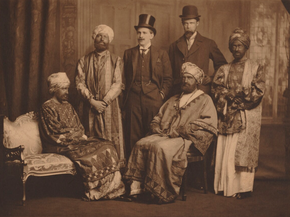
Back Poets Afrikaans خدعة Arabic Mistifikasiya Azerbaijani Hoax BS Falsa alarma Catalan Hoax Czech Hoax Danish Hoax German Hoakso Esperanto Bulo Spanish

A hoax is a widely publicized falsehood so fashioned as to invite reflexive, unthinking acceptance by the greatest number of people of the most varied social identities and of the highest possible social pretensions to gull its victims into putting up the highest possible social currency in support of the hoax.[1]
Whereas the promoters of frauds, fakes, and scams devise them so that they will withstand the highest degree of scrutiny customary in the affair, hoaxers are confident, justifiably or not, that their representations will receive no scrutiny at all. They have such confidence because their representations belong to a world of notions fundamental to the victims' views of reality, but whose truth and importance they accept without argument or evidence, and so never question.
Some hoaxers intend eventually to unmask their representations as in fact a hoax so as to expose their victims as fools; seeking some form of profit, other hoaxers hope to maintain the hoax indefinitely, so that it is only when sceptical persons willing to investigate their claims publish their findings that at last they stand revealed as hoaxers.
- ^ Tattersall, Ian; Névraumont, Peter (2018). Hoax: A History of Deception; 5,000 Years of Fakes, Forgeries, and Fallacies. Running Press. ISBN 9780316503709 – via Google Books.